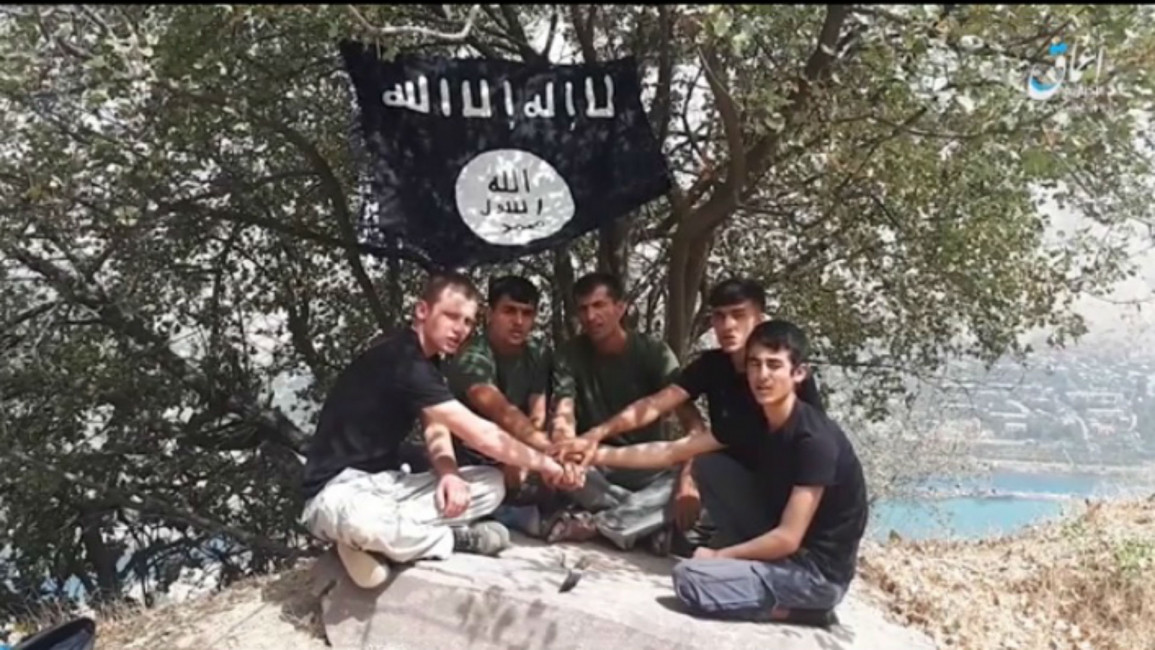IS release video of Tajikistan 'tourist killers' pledging allegiance
The Islamic State group on Tuesday released a video showing what it said was a pledge of alliegence by the five men accused of killing European and American tourists in Tajikistan.
A group of seven tourists were attacked while cycling along a popular route in the country's south on Sunday. Four of the cyclists were killed and two injured.
Islamic State group militants later claimed responsibility for the incident, which was initially reported as a hit-and-run.
The video released on Tuesday shows five young men, who resemble pictures of the suspects put out by Tajik police, sat at what appears to be the top of a hill. They are seen joining hands while sat before the IS group's black and pledging alleigance to the group's leader, Abu Bakr al-Baghdadi.
Tajik authorities, however, have dismissed the IS group's claims and said that the attack was carried out by a the Islamic Renaissance Party of Tajikistan (IRPT), a banned opposition group allegedly backed by Iran.
Tajikistan said the leader of the attackers was Hussein Abdusamadov, a man Tajik police say received "military sabotage" training in Iran.
The IRPT have denied the claims.
"These allegations are baseless and they are not our members," Mahmudjon Faizrahmon, a spokesman for the group, told AFP.
"Unfortunately, the authorities used this human and national tragedy to suppress their opponents," he said.
Tehran also denied any involvement.
"The Islamic Republic of Iran denies any link with this terrorist attack and categorically denies that there is any military base to train terrorists inside Iran," said foreign ministry spokesman Bahram Ghasemi, quoted by the Mehr news agency.
"We condemn all terrorist acts all over the world, including the recent attack on foreign tourists in Tajikistan," he said.
While majority-Muslim Iran and Tajikistan share a Persian cultural and linguistic heritage, relations between the countries have been tense.
Muslims in Tajikistan overwhelmingly adhere to Sunni Islam, while Shia Islam dominates in Iran, limiting religious ties between the two countries.

![Hundreds demonstrate against the White House Correspondents' Dinner in support of Gazan journalists. [Brooke Anderson/TNA]](/sites/default/files/styles/image_212x120/public/2024-04/5cde0bce-4652-4e28-a001-f06b9b8f8e28.jpg?h=ddb1ad0c&itok=KpFyfV2a)

